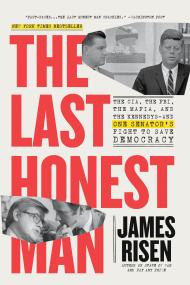Promotion
FLASH SALE! Save up to 50% off on select items & get free shipping on orders $45+
The Stadium
An American History of Politics, Protest, and Play
Contributors
Formats and Prices
Price
$18.99Price
$24.99 CADFormat
Format:
- ebook $18.99 $24.99 CAD
- Hardcover $32.00 $41.00 CAD
Also available from:
Stadiums are monuments to recreation, sports, and pleasure. Yet from the earliest ballparks to the present, stadiums have also functioned as public squares. Politicians have used them to cultivate loyalty to the status quo, while activists and athletes have used them for anti-fascist rallies, Black Power demonstrations, feminist protests, and much more.
In this book, historian Frank Guridy recounts the contested history of play, protest, and politics in American stadiums. From the beginning, stadiums were political, as elites turned games into celebrations of war, banned women from the press box, and enforced racial segregation. By the 1920s, they also became important sites of protest as activists increasingly occupied the stadium floor to challenge racism, sexism, homophobia, fascism, and more. Following the rise of the corporatized stadium in the 1990s, this complex history was largely forgotten. But today’s athlete-activists, like Colin Kaepernick and Megan Rapinoe, belong to a powerful tradition in which the stadium is as much an arena of protest as a palace of pleasure.
Moving between the field, the press box, and the locker room, this book recovers the hidden history of the stadium and its important role in the struggle for justice in America.
-
“An astute reminder that democracy depends on public spaces where people can congregate and political action can occur.”Kirkus
-
“Valuable for its insights into how the stadium’s design and functions have fed into and exacerbated existing power structures…a sprawling history that ventures in many surprising directions."Publishers Weekly
-
“Frank Guridy’s impressively wide-ranging and lucid history reveals that stadiums have always been about far more than just play. They are, as he shows, ‘America’s public square’: combustible sites of conflict, community, and consumption that embody both reactionary and utopian visions of our society. This is essential reading for anyone who has ever been to a stadium.”Theresa Runstedtler, author of Black Ball
-
“Guridy has delivered a deep and impactful book that spells out both the complicity the public infrastructure owns in reinforcing the heinous foundations of segregation as well as its long history of serving as a place for protest and change. This book is a terrific reminder that, for all its private billions, the stage of sports has been funded by us, the public. Far from politics being an anomaly in sports, The Stadium offers proof that, while we were watching one game, an equally important one was taking place.”Howard Bryant, author of Full Dissidence
-
“When is a stadium not just a stadium? How about when it is a staging ground for protest? Or a site to drum up support for war? Or a publicly funded cudgel of gentrification? In Guridy’s new book, he unmasks the power of the stadium and how it is interwoven into our lives whether we are sports fans or not. His concrete and steel protagonist comes to life in ways both exhilarating and terrifying. The Stadium is a masterwork of history, journalism, and cultural analysis. A triumph.”David Zirin, Sports Editor, The Nation
-
"Frank Guridy's The Stadium brilliantly reveals how these iconic structures––from the humble beginnings of wooden ballparks to the towering mega-arenas of steel and glass––have served as not only simple spaces for recreation but also as monoliths of institutional power and vibrant public squares for political activism. The Stadium unravels and lays bare the complex interplay between play, protest, and politics with pulsating prose and enthralling historical research. A tribute to the tradition of using the sports arena as a platform for justice, Guridy's work is a compelling reminder of the stadium's pivotal role in the ongoing struggle for equality in America—a must-read for anyone fascinated by the intersection of sports, society, and activism."Rowan Ricardo Phillips, author of The Circuit
-
“All of the hallmarks of Guridy’s many talents are vividly apparent in The Stadium, a deeply researched work that is beautifully shaped with meticulous and engaging detail, all crafted with Guridy’s usual flair for writing about sport from an intensely historical perspective. Guridy situates the landscape of America’s favorite playing spaces as pathways to understanding some of the most complicated facets of our society, from political maneuverings to activist uprisings, all within the ever-increasing corporate model of the modern sport arena.”Amy Bass, author of One Goal
-
“In his compelling new book, The Stadium, Guridy traces the truly surprising history of venues thought to be mere athletic stages that are, and have been, incubators and reflections of greater societal themes. In this fascinating work, Guridy takes us from the Colosseum of the Roman Empire to indoor arenas to the Barclays Center in Brooklyn and convincingly demonstrates that these edifices are not only a reflection of their times but have also been instrumental in shaping them.Eric H. Holder Jr., 82nd attorney general
Guridy’s discussion of the construction, cost and use of stadiums is an intriguing and ultimately convincing new way to view history and the growth of social movements. Guridy also proves that, despite their ability to contain thousands, stadiums have oftentimes not been havens of inclusion but instruments of exclusion as well as racial and social stratification.
Sports fans, history buffs, social movement examiners—not necessarily an expected interest confluence—will find this work illuminating. It is an accessible and thought-provoking effort that every person who has sat in the stands or admired a stadium from afar would be wise to read.”
- On Sale
- Aug 20, 2024
- Page Count
- 368 pages
- Publisher
- Basic Books
- ISBN-13
- 9781541601475
Newsletter Signup
By clicking ‘Sign Up,’ I acknowledge that I have read and agree to Hachette Book Group’s Privacy Policy and Terms of Use







